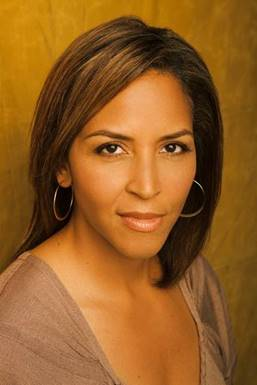For Years I Was Afraid to Talk About My Hair at Work. Then I Did the Big Chop
Growing up, I always felt like my hair wasn't something I could discuss. I went to a predominately white Lutheran elementary school where, if you showed up one day with frizzy hair because it was raining outside, you’d get made fun of. While my white friends could do their hair to get compliments, everything I did was to mitigate feelings of otherness. Wearing curlers—and the pain of trying to get my hair “presentable”—was merely a means to fit in. You'd do everything just to not get a comment.
That taboo persisted for years. But, of course, I wasn't the only one who felt that way. I remember when Chris Rock's film Good Hair came out in 2009, and it was such a revelation to so many people because it was like, here’s what’s going on in the Black community, and you’re completely unaware of what a big issue hair is for Black women. Even still, at that time you would never talk about your hair or your issues with your hair with white friends.
As a producer, writer, and showrunner, I've tried to bring those discussions to light. Early in my career, I worked on a show called Any Day Now, which was about friendship between a Black woman and a white woman who'd been friends since childhood. We covered a lot of race issues, and one of the episodes I wrote was about a younger girl getting her hair relaxed. Her white friend just didn’t understand why it was such a big deal. She pushes her into a pool, which is a big no-no. It really explored what it’s like to have Black hair in white America. And how it’s something white people really don’t understand, because they’re just not familiar with it.

Elle Johnson
Working on Self-Made was really one of the few times in my professional career when I felt like I was in an environment where I could be—and where I wanted to be—completely open, honest, and free about what my hair was. But the funny thing is I was still getting my hair Brazilian-ed and dyed a shade I called Beyoncé blond. Don't get me wrong, it was a really cute hairstyle. But it was time-consuming. I'd bike to work to get a workout in, then I'd have to wet my hair, dry it, and use a curling iron to style it, so I could get “pulled together.” It was 40 minutes of work in the bathroom before my actual work would even begin.
I’d go from that to sitting down in a room with other Black women, where we'd discuss Madam C.J. Walker, this beauty mogul who was trying to create hair products for Black women that would allow them to work in white spaces. All these discussions obviously got me thinking about my own hair. I was feeling like, What am I doing? Why am I still perpetuating this notion that my hair has to be straight? I was in an environment where I was surrounded by other women who were natural. I was one of the co-showrunners. I was in charge! And still I was spending so much time trying to make my hair look “a certain way” because that's the way I'd always done it.
So I decided that I was going to chop my hair off. I was going to get rid of the Brazilian and cut it down to the new growth. And it was incredible. Suddenly I felt like I had all this time. I didn’t have to worry about styling my hair.
Letting my natural hair come through was really both liberating and illuminating, but it was also difficult. As much as it was easier in the physical sense of getting ready each morning, mentally I still had to get over that barrier of feeling like it wasn't as “attractive.” I loved running my fingers through my hair and feeling my texture for what it really was, but then I'd look in the mirror and have this disconnect of what I was so used to seeing. I had to acquaint myself with my natural hair and reconcile that this is what my hair was supposed to look like: It’s beautiful and it feels great. It really was a psychological journey—as much as it was a physical one—to get back to a place of being comfortable with who I naturally was.
That was over a year ago, and now, being in quarantine during the pandemic, I'm going even deeper into that journey. I haven’t dyed my hair or gotten my hair cut in months. To keep myself from descending too far into wearing pajamas on Zoom every day, I’ve been giving myself the task of wearing everything in my wardrobe—ball gowns, suits, all the stuff I’ve never worn, just so I can get dressed every day. And then I post it on Instagram, with my wild hair and all.
Right now, judging by the gray, I've got about a good six inches of new growth, and it's completely frizzy in places. But, honestly, I’m kind of enjoying it even more. It’s nice to see my hair in its totally natural state with no color in it. It’s just this crazy, wild, mane of curls and frizz, and I’m loving it.
Elle Johnson is the executive producer and co-showrunner for Self Made: Inspired by the Life of Madam C.J. Walker, now streaming on Netflix.
Originally Appeared on Glamour
